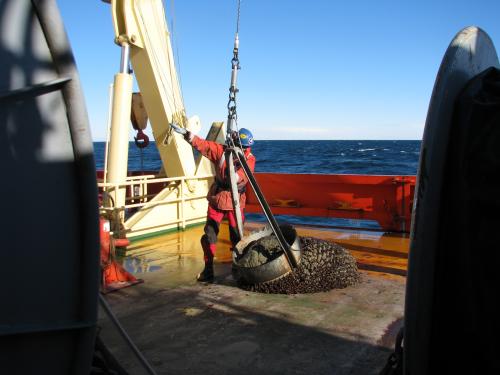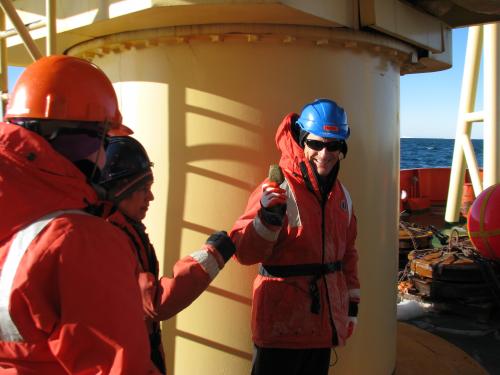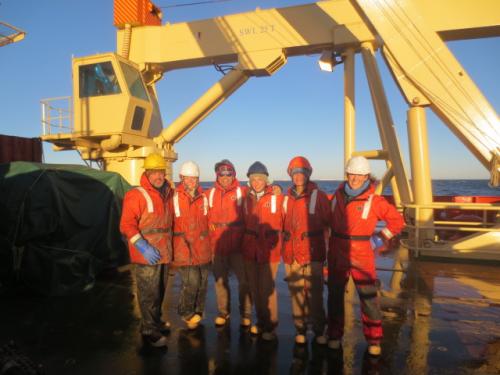One tough mudder of a job!
As I write this we are 3 nautical miles north of the Totten ice band. It is 3:21 am EST. We are slowly making our way through 2-3 feet of sea ice, in hopes of reaching our intended research sites soon. The sea ice is beautiful and loaded with marine mammals and penguins. When we are breaking ice we must observe for any mammal activity. We monitor their location and the reaction to the ships movements. I will be doing a future journal all about Marine Mammal Observation.

Yesterday I introduced the dredge. As I mentioned there are 2 main types. Biological dredges and geologic or ring dredges. Above you can see a geologic dredge on the stern of the ship. Like the biological dredge it is dragged along the bottom. The specific locations for the dredge sites are selected based on seismic data.

Once on the stern, a specially made box is used to examine the sediment. It is done one shovel at a time so it can be very time consuming. Each person on the fantail is busy, shoveling, digging and cleaning. The good part is, it is outside.


The scientists are looking for specimens of rocks that hold the clue about certain time periods of geologic time. A particular period of time is that between the Eocene and Oligocene. I will also discuss that in a future journal as it is very interesting and important.

I hope this gives you a little idea about one of the many jobs that have and will be done as our cruise continues. The crew has informed us of an incoming storm. Looks like we will need to make sure all our gear is secured. Hopefully it won't interfere at all with the vital science that the cruise is working on. Please keep the questions coming!


Comments